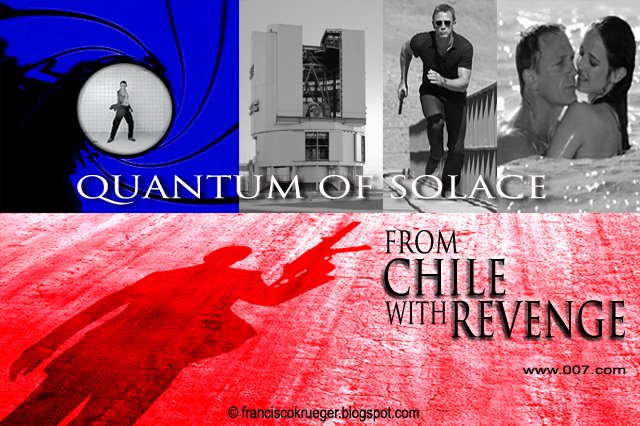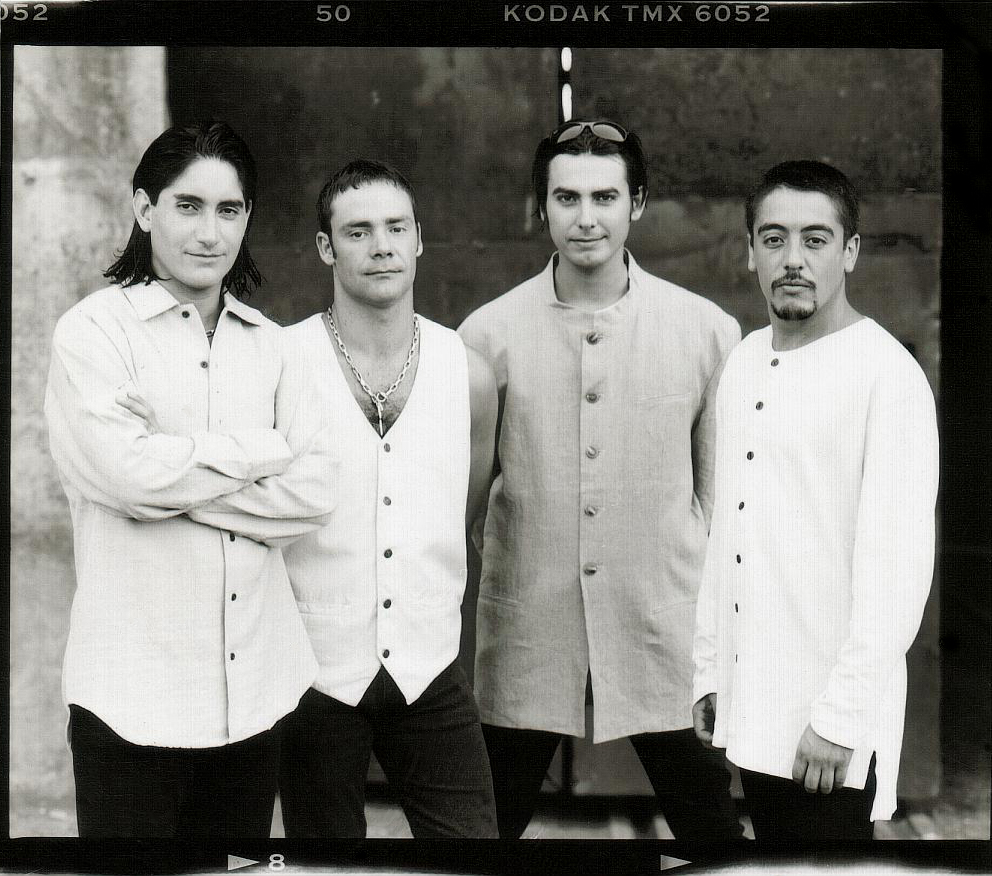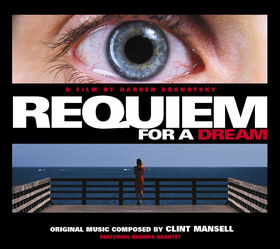What The Bleep Do We Know?

What the Bleep Do We Know!? (also written What the #$*! Do We Know!?) is a controversial 2004 film that combines documentary interviews and a fictional narrative to posit a connection between science and spirituality based upon the teachings of JZ Knight/Ramtha, of whom the three directors are devotees.[1] There is also an extended 2006 version, What the Bleep!?: Down the Rabbit Hole.[2]
The topics discussed in What the Bleep Do We Know!? include neurology, quantum physics, psychology, epistemology, ontology, metaphysics, magical thinking and spirituality. The film features interviews with individuals presented as experts in science and spirituality, interspersed with the story of a deaf photographer as she struggles with her situation. Computer-animated graphics feature heavily in the film. The film has received widespread criticism from the scientific community. Physicists, in particular, claim that the film grossly misrepresents the meaning of various principles of quantum mechanics, and is in fact pseudoscience.Filmed on location in Portland, Oregon, What the Bleep Do We Know (according to the makers "Bleep" is a bowdlerization of "fuck" — William Arntz has referred to the film as "WTFDWK" in a message to Bleeps' "Street Team") blends a fictional story line, documentary-style discussion, and computer animation to present a view of the physical universe and human life within it, with purported connections to neuroscience and quantum physics. Some ideas discussed in the film are:
The universe is best seen as constructed from thought (or ideas) rather than from substance (see idealism);
What has long been considered "empty space" is anything but empty (see vacuum energy);
Our beliefs about who we are and what is real are not simply observations, but rather form ourselves and our realities (see solipsism).
Peptides manufactured in the brain can cause a bodily reaction to an emotion, resulting in a new perspective to old adages such as "think positively" and "be careful what you wish for."
In the fictional part, Amanda, a deaf photographer (played by Marlee Matlin) acts as the viewer's avatar as she experiences her life from startlingly new and different perspectives.
In the documentary part of the film, a number of purported scientific experts in quantum physics, biology, medicine, psychiatry, and theology discuss the roots and meaning of Amanda's experiences. However, viewers are not told the credentials of the experts until the credits at the end of the film. The comments of the scientific experts converge on a single theme: "We all create our own reality." Although not widely held by the scientific community, this point of view correlates with the subjective experience. Authors arguing related viewpoints include Jane Roberts (the Seth books), Richard Bach (Jonathan Livingston Seagull and Illusions), the writings of Abraham-Hicks, and of Deepak Chopra, Dr. Wayne Dyer, and Dr. David R. Hawkins.
The topics discussed in What the Bleep Do We Know!? include neurology, quantum physics, psychology, epistemology, ontology, metaphysics, magical thinking and spirituality. The film features interviews with individuals presented as experts in science and spirituality, interspersed with the story of a deaf photographer as she struggles with her situation. Computer-animated graphics feature heavily in the film. The film has received widespread criticism from the scientific community. Physicists, in particular, claim that the film grossly misrepresents the meaning of various principles of quantum mechanics, and is in fact pseudoscience.Filmed on location in Portland, Oregon, What the Bleep Do We Know (according to the makers "Bleep" is a bowdlerization of "fuck" — William Arntz has referred to the film as "WTFDWK" in a message to Bleeps' "Street Team") blends a fictional story line, documentary-style discussion, and computer animation to present a view of the physical universe and human life within it, with purported connections to neuroscience and quantum physics. Some ideas discussed in the film are:
The universe is best seen as constructed from thought (or ideas) rather than from substance (see idealism);
What has long been considered "empty space" is anything but empty (see vacuum energy);
Our beliefs about who we are and what is real are not simply observations, but rather form ourselves and our realities (see solipsism).
Peptides manufactured in the brain can cause a bodily reaction to an emotion, resulting in a new perspective to old adages such as "think positively" and "be careful what you wish for."
In the fictional part, Amanda, a deaf photographer (played by Marlee Matlin) acts as the viewer's avatar as she experiences her life from startlingly new and different perspectives.
In the documentary part of the film, a number of purported scientific experts in quantum physics, biology, medicine, psychiatry, and theology discuss the roots and meaning of Amanda's experiences. However, viewers are not told the credentials of the experts until the credits at the end of the film. The comments of the scientific experts converge on a single theme: "We all create our own reality." Although not widely held by the scientific community, this point of view correlates with the subjective experience. Authors arguing related viewpoints include Jane Roberts (the Seth books), Richard Bach (Jonathan Livingston Seagull and Illusions), the writings of Abraham-Hicks, and of Deepak Chopra, Dr. Wayne Dyer, and Dr. David R. Hawkins.
Featured Individuals
Andrew Newberg, assistant professor of radiology at the University of Pennsylvania Hospital, and physician in nuclear medicine. He is coauthor of the book, Why God Won't Go Away: Brain Science & the Biology of Belief (ISBN 0-345-44034-X).
Candace Pert wrote the book Molecules of Emotion in 1997 (foreword written by Deepak Chopra) where she espoused views very similar to those of the film. Some aspects of the film appeared to be based on her book. For example, the first ten minutes of the movie can be summarized by a quote from pages 146–148 of Molecules of Emotion where she writes:
There is no objective reality! ... Emotions are constantly regulating what we experience as "reality." The decision about what sensory information travels to your brain and what gets filtered depends on what signals the receptors are receiving from the peptides ... For example, when the tall European ships first approached the early Native Americans, it was such an "impossible" vision in their reality that their highly filtered perceptions couldn't register what was happening, and they literally failed to "see" the ships.
Another point in the movie can be well summarized by page 285, where she writes:
The tendency to ignore emotions is oldthink, a remnant of the still-reigning paradigm that keeps us focused on the material level of health, the physicality of it. But the emotions are a key element in the self-care because they allow us to enter into the bodymind's conversation. By getting in touch with our emotions, both by listening to them and by directing them through the psychosomatic network, we gain access to the healing wisdom that is everyone's natural biological right.
David Albert, a philosopher of physics and professor at Columbia University, speaks frequently throughout the movie. While it may appear as though he supports the ideas that are presented in the movie, according to a Popular Science article, he is "outraged at the final product."[9] The article states that Albert granted the filmmakers a near-four hour interview about quantum mechanics being unrelated to consciousness or spirituality. His interview was then edited and incorporated into the film in a way that he claims misrepresented his views. In the article, Albert also expresses his feelings of gullibility after having been "taken" by the filmmakers. Although Albert is listed as a scientist taking part in the sequel to What the Bleep, called "Down the Rabbit Hole",[10] this sequel is a "director's cut", composed of extra footage from the filming of the first movie.[11]
Other interviewees in the film include Joe Dispenza, a chiropractor, author, and a devotee of Ramtha's School of Enlightenment;[12] Miceal Ledwith, author and former professor of theology at Maynooth College in Ireland; Daniel Monti, physician and director of the Mind-Body Medicine Program at Thomas Jefferson University; Jeffery Satinover, psychiatrist and author; and William Tiller, Professor Emeritus of Material Science and Engineering at Stanford University, and author of over 250 scientific publications.
Amit Goswami and William Tiller are both employed by the Institute of Noetic Sciences.





























































































